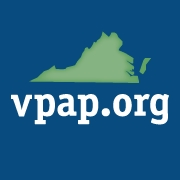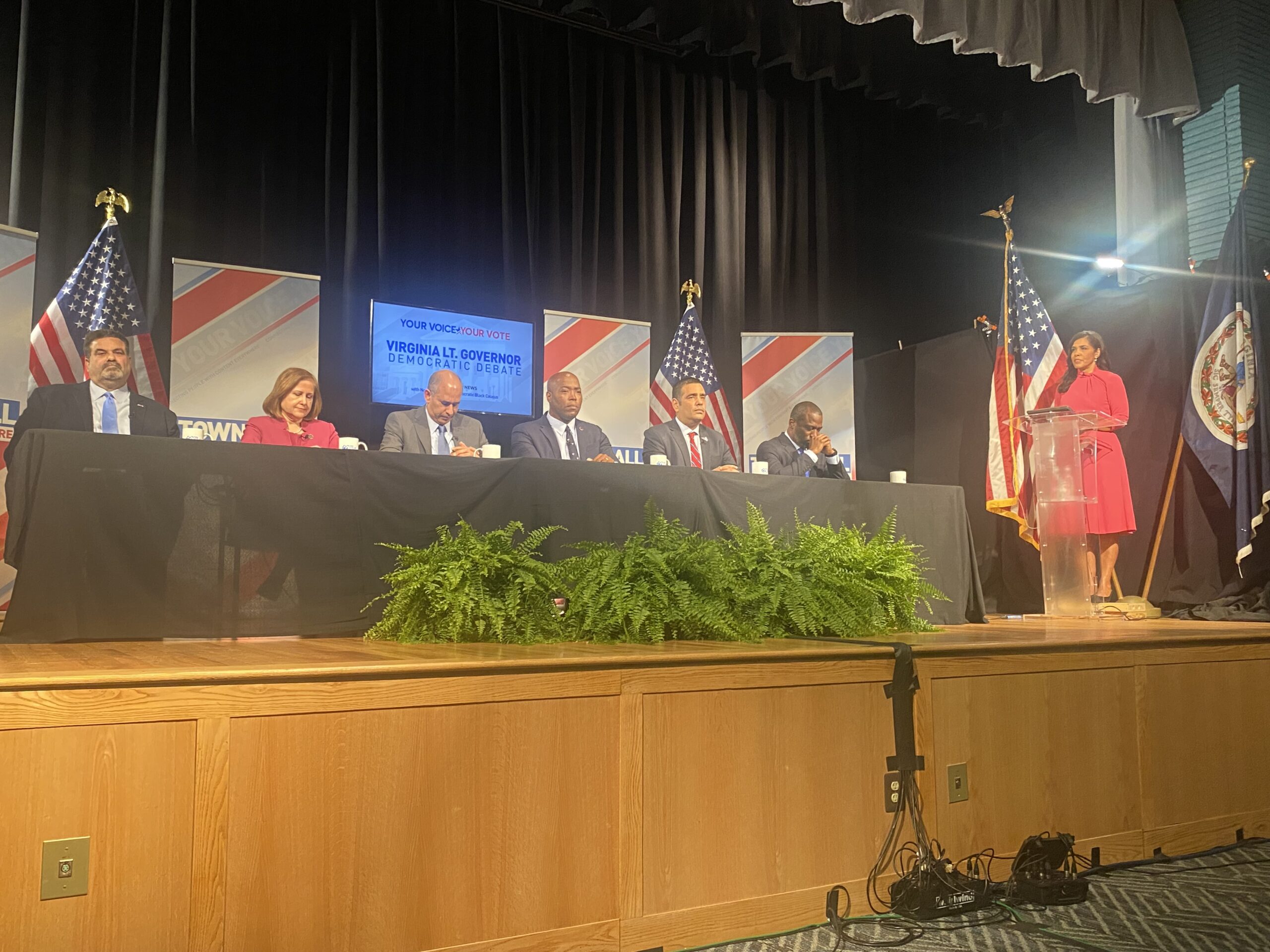After Virginia Votes: VPAP Reflects on 2020’s Pivotal Election
Coming off one of the most challenging Presidential elections in history, recently there was a virtual panel that discussed the lessons learned and where the state of Virginia goes from here. Jeff Britt, Chairman of the Virginia Public Access Project (VPAP) Board of Directors, introduced the event by saying “this is an annual tradition, where we bring together two leading campaign professionals, one Republican and one Democrat, for a civil conversation about the just-completed campaign.”
The event was co-coordinated by the Schar School of Policy and Government at George Mason University and the Judy Ford Wason Center for Public Policy at Christopher Newport University.
The event was co-sponsored by several corporations, organizations, and individuals. The Schar School of Policy and Government at George Mason University, the Judy Ford Wason Center for Public Policy at Christopher Newport University, and Cox Residential Services were the event’s “partner[s] and signature sponsor[s]” according to Britt. “Gold Sponsors” included MercerTrigiani which, “provides comprehensive legal services supporting the administration, operation, and governance of common interest communities across Virginia and the District of Columbia” according to their website, and Shep Miller, former Chairman of KITCO Fiber Optics and Commonwealth Transportation Board member, among other involvements. “Silver Sponsors” included the Apartment and Office Building Association, Newport News Shipbuilding, Northern Virginia Association of Realtors, Northern Virginia Electric Cooperative, Port of Virginia, and Volkswagen of American. The event’s “Bronze Sponsor” was Washington Gas.
Nneka Chiazor, Regional Vice President for Government and Public Affairs at Cox Communications and Vice Chair of the VPAP Board of Directors, shared that “VPAP’s mission tightly aligns with our mission at Cox.”
David Poole, Executive Director of VPAP, introduced the event’s moderator, Peter Baker, Chief White House Correspondent for the New York Times and “a Virginia boy, born in Fairfax Hospital.”
Campaign panelists included: Alice Lin Tong, Deputy Campaign Manager for Senator Mark Warner and Rob Simms, Partner at Convergence Media and NRCC executive.
Baker’s first question was “When did we [Virginia] go from being a reliable Republican state. . .to what seems to be, a that moment, a reliable Democratic state?”
Simms said “I wouldn’t call it permanent yet.” Adding that “some of the rhetoric the president may have used in 2015 and 2016 with ‘draining the swamp’ with the largest concentration of federal employees arguably in the country, has probably accelerated those trends a little bit.” Considering whethe “we’re going to see if some of these suburban areas in particular. . .start to swing back [right] as has been the case in many areas of the country nationally.”
When asked by Baker “What surprised you about these results?” Tong said “As a Democrat, we know how to win elections here in Virginia.”
Directing a question to Simms, Baker asked “Are the demographics of the state changing so much that the places where the red voting is rising are going to outmatch or in someway catch up to the blue vote that’s changing in these suburbs? Or are you going to have to go back to the suburbs and reorient your argument to try and win back these suburbs?”
“Well I don’t think both parts of your questions are mutually exclusive” said Simms. “There has to be a concerted effort to target, to talk to, persuade, and then turn out suburban voters because as your identifying the math in Virginia, in particular, it becomes very very difficult for us.”
Next, Baker mentioned “something Congresswoman Spanberger said on a conference call last week” referring to an incident during which Spanberger criticized the progressive left and received pushback from House colleagues for her comments.
“One area I agree with Congresswoman Spanberger is when she talked about socialism and some of the adds that were run this cycle” said Tong. Responding to a question from a constituent later on in the event, she said “I’ll be honest, I don’t think that [defund the police] was an issue with which a lot of our voters were focused on.” Disagreeing, Simms said “for a lot of Democrats it showed an underbelly of the ideological bend of the part and that was the real vulnerability.” During the academic panel Rozell said “If the Democrats are perceived as merging to far to the left statewide, that’s a problem, Abigail Spanberger I think said it exactly right.” Kidd said “Democrats do have to worry about going too far so that those largely non-partisan suburban voters who could care less [about] whether their voting for a Republican or Democrat, they just want government to do good things and help them improve their lives, Democrats can’t lose them or they’re going to lose power.”
“This year was warped in a way that we’ve never seen in modern time, which is that we had a pandemic with 230,000 that have been killed and a lot of fear about how that would affect voting” commented Baker.
Tong mentioned that her campaign “ran digital ads on Snapchat, Instagram, and Facebook” as well as “pre-roll on Hulu.” Whereas Simms highlighted that “you have to go to where the eyes are, if you will” in regards to digital advertising.
Both speakers talked about keeping people engaged year after year as every year in Virginia is important to politics.
In terms of the statewide senate race, Simms felt the Republican candidate “surpassed expectations” as a “first time candidate for statewide office” who “did not have the financial resources” of other candidates. Speaking from Warner’s campaign perspective Tong said “we had a plan and we executed that plan.”
The panelists also discussed the uncertainty around the future of voting patterns with redistricting on the horizon.
After the Q&A with Tong and Simms the event moved onto the portion with its academic panelists. Mark Rowell, Dean of the Schar School of Policy and Government at George Mason University and Quentin Kidd, Dean of the College of Social Sciences at Christopher Newport University joined the conversation to discuss several political issues, including redistricting.
Kidd said “there’s a lot of hope on one side [the right] that this commission made up of half legislators and half citizens is going to produce some glorious set of maps that’s going to look so dramatically different from the way maps have always looked and the reality is the maps are going to look the way they’ve always looked.” Asking the question “What role has partisan data and incumbent addresses played in the drawing of those maps?”
Rowell agreed and added “I’m not sure it’s going to make a huge difference, in terms of what the districts are going to look like going forward, but it was at least in one sense, politically, a lost opportunity for the Democrats.”
Transitioning the conversation to broader voting patterns, Kidd highlighted areas of Virginia that voted several points more for President-Elect Joseph Biden. This included: Virginia Beach (D +7.6), Chesapeake (D +6.2), Chesterfield (D + 5.9). “What I would call the sort of ‘second layer of the suburbs’ are now going D [Democratic] in pretty significant numbers.” Adding “Republicans have to figure out how to nominate a candidate who will be able to speak to suburban voters in a way that suburban voters are confident that those Republican candidates are hearing their concerns, and they haven’t been doing that in a while.”
Discussing the gubernatorial election, both speakers considered the numerous candidates who will be in a primary and the likelihood of a “movement candidate.”
As the reflections of what was a very contentious election season came to a close, it set the stage for a series of pivotal races in the Commonwealth as the seats of the Governor, Lieutenant Governor, and several House of Delegates seats will be up for grabs in 2021. What will be interesting to see is how the new committee on redistricting impacts the results, and whether the state’s growing diversity will be represented come next November.



